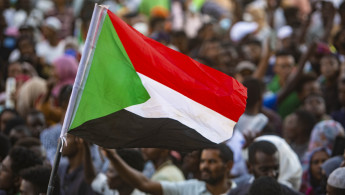Sudan mediators hit 'hurdles' after coup
Just over a week after Sudan's top general locked up political leaders and seized power sparking mass protests and a deadly crackdown, mediators are seeking to restore the transition to civilian rule.
But experts warn that Sudan's military and civilian leadership are deeply divided, senior figures remain under military guard, and rebuilding trust between rival factions is a mammoth task.
"We sat with all actors from the military and civilian sides," one mediator said on condition of anonymity.
That intermediary is among a stream of leading Sudanese figures -- including businessmen, academics and journalists -- who have been trying to break the stalemate.
"We secured initial consent for talks, but hurdles remain in the way," the mediator added.
Sudan has enjoyed only rare democratic interludes since independence in 1956 and spent decades riven by civil war.
Since August 2019, the northeast African country had been ruled by a joint civilian-military council as part of the now derailed transition to full civilian rule.
But in a move widely condemned internationally, General Abdel Fattah al-Burhan -- Sudan's de facto leader since the 2019 ouster of autocratic president Omar al-Bashir -- last week dissolved the government, detained the civilian leadership, and declared a state of emergency.
It triggered nationwide mass protests against the military -- demonstrations met by a deadly crackdown by security forces, resulting in at least a dozen people killed and scores wounded.
After armed troops were sent to crush protesters, street demonstrations have faded, although the situation remains volatile.
World powers demanded a swift return to civilian rule, and made punitive aid cuts that will hit hard in a country already mired in a dire economic crisis.
Last week, Burhan, a veteran general who served under Bashir's three-decades long iron fisted rule, vowed to form another civilian government.
Yet the two sides remain far apart.
"The civilians feel burnt by what their military partners did on October 25th," and will have "a high expectation" of guarantees to trust the military again, said Jeffrey Feltman, the US special envoy for the Horn of Africa.
Both sides, however, are going to need to work together, Feltman added.
"One's not going to be able to sideline the military, just as the military should not be trying to sideline civilians as they are now."
He told reporters the US has been in touch with Egypt and the United Arab Emirates to discuss Sudan's crisis.
The main civilian bloc, the Forces for Freedom and Change (FFC) which led anti-Bashir protests, had just before the coup divided into two opposing factions, with a splinter group supporting the military.
The mainstream FFC remains committed to civilian rule. It says civilian leaders -- including Prime Minister Abdalla Hamdok, who is effectively under house arrest -- must be freed before negotiations can progress.
"We insisted on the release of civilian detainees and resumption of the power-sharing deal as a prerequisite for talks," said Kamal Ismail, an FFC leader, after meetings with African Union officials.
"We believe these are not conditions. They are simply our rights."
The AU last week suspended Sudan's membership "until the effective restoration of the civilian-led transitional authority", and a team from the bloc's Peace and Security Council is expected in Khartoum on Wednesday.
United Nations officials and Western diplomats have called for the return of the government.
"We're engaging with all Sudanese across a very broad political spectrum," said Volker Perthes, UN special representative to Sudan, said Monday.
Neighbouring South Sudan, which contributes significantly to Khartoum through fees for sending its oil to export through a pipeline in Sudan, sent presidential adviser Tut Gatluak to try to help broker talks.
"We seek to bring all sides to hold a comprehensive dialogue on all issues," Gatluak said.
Other senior Sudanese mediators have held two meetings with Burhan on behalf of the FFC.
"He listened to the demands, and said he would take them into consideration," one mediator said on condition of anonymity.
However, the mediator warned they did not expect a resolution any time soon.
"We don't expect the military to heed these demands on the first attempt," he added, citing "ongoing tensions and the lack of trust."





 Follow the Middle East's top stories in English at The New Arab on Google News
Follow the Middle East's top stories in English at The New Arab on Google News


